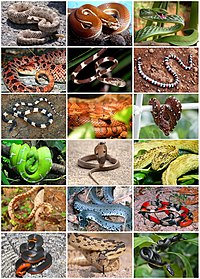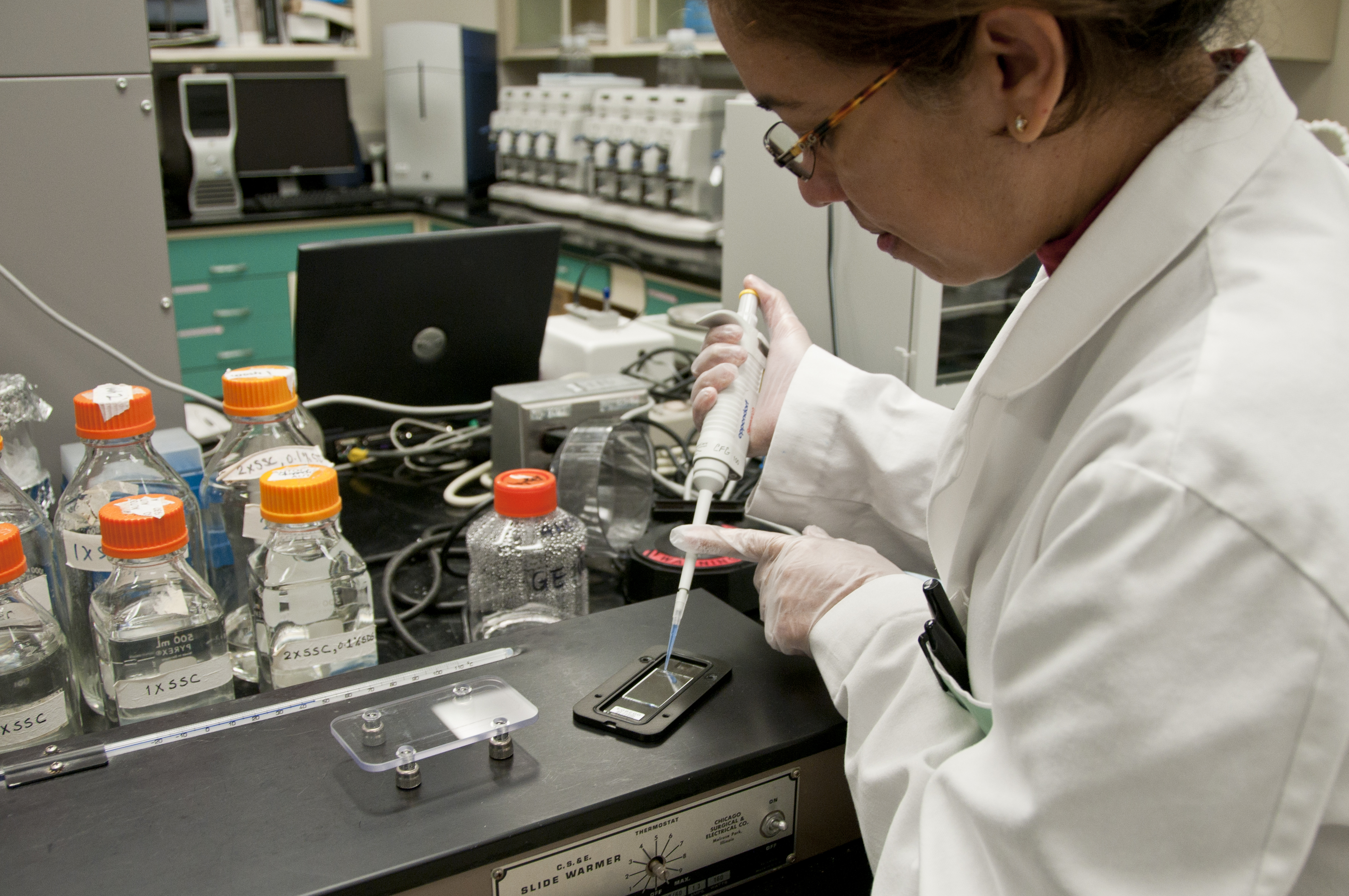
Evaluation of capillary zone electrophoresis for the quality control of complex biologic samples: Application to snake venoms
Sign Up to like & getrecommendations! Published in 2017 at "ELECTROPHORESIS"
DOI: 10.1002/elps.201700158
Abstract: Snake venoms constitute a very promising resource for the development of new medicines. They are mainly composed of very complex peptide and protein mixtures, which composition may vary significantly from batch to batch. This latter… read more here.
Keywords: methodology; snake venoms; capillary zone; quality control ... See more keywords

Comparative study of the in vivo toxicity and pathophysiology of envenomation by three medically important Egyptian snake venoms
Sign Up to like & getrecommendations! Published in 2019 at "Archives of Toxicology"
DOI: 10.1007/s00204-019-02619-y
Abstract: Snakebite envenomation is a serious medical problem in many developing tropical and subtropical countries. Envenomation is registered by the World Health Organization as a neglected tropical disease due to critical shortages in the production of… read more here.
Keywords: nigricollis venom; venom; snake venoms; study ... See more keywords

Rapid screening and identification of ACE inhibitors in snake venoms using at-line nanofractionation LC-MS
Sign Up to like & getrecommendations! Published in 2017 at "Analytical and Bioanalytical Chemistry"
DOI: 10.1007/s00216-017-0531-3
Abstract: This study presents an analytical method for the screening of snake venoms for inhibitors of the angiotensin-converting enzyme (ACE) and a strategy for their rapid identification. The method is based on an at-line nanofractionation approach,… read more here.
Keywords: snake venoms; line nanofractionation; ace inhibitors; identification ... See more keywords

Cervical cancer and potential pharmacological treatment with snake venoms
Sign Up to like & getrecommendations! Published in 2020 at "Molecular Biology Reports"
DOI: 10.1007/s11033-020-05503-6
Abstract: Cervical cancer is the fourth most common cancer worldwide in women. Apoptosis reactivation has become the main strategy for decreasing cancer proliferation. There is a need to extend the search for new drugs to implement… read more here.
Keywords: treatment; snake venoms; cervical cancer; cancer ... See more keywords

Snake venoms from Angola: Intra‐specific variations and immunogenicity
Sign Up to like & getrecommendations! Published in 2018 at "Toxicon"
DOI: 10.1016/j.toxicon.2018.04.013
Abstract: ABSTRACT Snakebite is a public health problem in many countries of world. These accidents are considered a Neglected Tropical Disease and are responsible for a high morbidity and mortality index in the South and Southeast… read more here.
Keywords: angola intra; specific variations; snake venoms; intra specific ... See more keywords

Antiplatelet properties of snake venoms: a mini review
Sign Up to like & getrecommendations! Published in 2020 at "Toxin Reviews"
DOI: 10.1080/15569543.2018.1474927
Abstract: Abstract Snake venoms contain various active compounds including pharmacological polypeptides and proteins with various molecular weights. Some of these polypeptides and proteins are enzymatic or act as proteinases and hugely impact thrombosis and hemostasis in… read more here.
Keywords: mini review; snake venoms; antiplatelet properties; properties snake ... See more keywords

Proof of concept: could snake venoms be a potential source of bioactive compounds for control of mould growth and mycotoxin production
Sign Up to like & getrecommendations! Published in 2020 at "Letters in Applied Microbiology"
DOI: 10.1111/lam.13338
Abstract: The objective was to screen 10 snake venoms for their efficacy to control growth and mycotoxin production by important mycotoxigenic fungi including Aspergillus flavus, Aspergillus westerdijkiae, Penicillium verrucosum, Fusarium graminearum and F. langsethiae. The Bioscreen… read more here.
Keywords: mycotoxin production; bioactive compounds; snake venoms; growth mycotoxin ... See more keywords

Antiprotozoal Effect of Snake Venoms and Their Fractions: A Systematic Review
Sign Up to like & getrecommendations! Published in 2021 at "Pathogens"
DOI: 10.3390/pathogens10121632
Abstract: Background: Protozoal infection is a lingering public health issue of great concern, despite efforts to produce drugs and vaccines against it. Recent breakthrough research has discovered alternative antiprotozoal agents encompassing the use of snake venoms… read more here.
Keywords: review; antiprotozoal effect; effect snake; effect ... See more keywords

From Snake Venoms to Therapeutics: A Focus on Natriuretic Peptides
Sign Up to like & getrecommendations! Published in 2022 at "Pharmaceuticals"
DOI: 10.3390/ph15091153
Abstract: Snake venom is a cocktail of multifunctional biomolecules that has evolved with the purpose of capturing prey and for defense. These biomolecules are classified into different classes based on their functions. They include three-finger toxins,… read more here.
Keywords: venom nps; venoms therapeutics; natriuretic peptides; snake venoms ... See more keywords

Organic and Peptidyl Constituents of Snake Venoms: The Picture Is Vastly More Complex Than We Imagined
Sign Up to like & getrecommendations! Published in 2018 at "Toxins"
DOI: 10.3390/toxins10100392
Abstract: Small metabolites and peptides in 17 snake venoms (Elapidae, Viperinae, and Crotalinae), were quantified using liquid chromatography-mass spectrometry. Each venom contains >900 metabolites and peptides. Many small organic compounds are present at levels that are… read more here.
Keywords: venom; snake venoms; venoms picture; constituents snake ... See more keywords

Varespladib (LY315920) and Methyl Varespladib (LY333013) Abrogate or Delay Lethality Induced by Presynaptically Acting Neurotoxic Snake Venoms
Sign Up to like & getrecommendations! Published in 2020 at "Toxins"
DOI: 10.3390/toxins12020131
Abstract: The phospholipase A2 (PLA2) inhibitor Varespladib (LY315920) and its orally bioavailable prodrug, methyl-Varespladib (LY333013) inhibit PLA2 activity of a wide variety of snake venoms. In this study, the ability of these two forms of Varespladib… read more here.
Keywords: presynaptically acting; varespladib ly315920; varespladib; snake venoms ... See more keywords